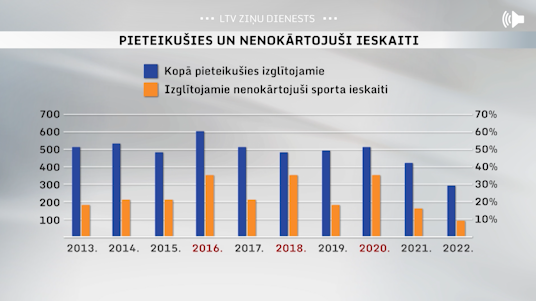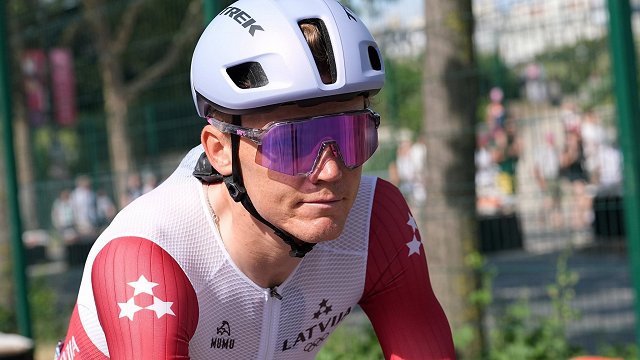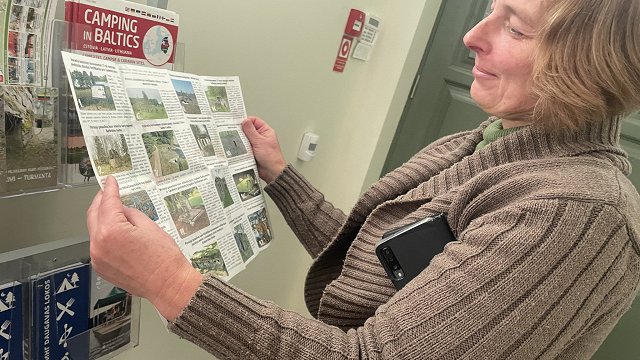Anita Fišere, deputy director of the State Police College, was the chairwoman of the admissions committee for 15 years. She observed that the motivation of young people to become police officers had also been severely affected by the deterioration in the level of physical preparedness.
Fišere said: "Physical preparedness is weak. This is what we see very well in the admissions process, in the studies, and in the learning process. It is clear that a more physically prepared person can also be more intellectually powerful because they are more competitive. All this is felt in the learning process."
In recent years, the requirements for physical checks by authorities in the home sector have been reduced.
In order to enter one of the internal affairs structures, such as the police college or the State Fire and Rescue Service (VUGD), applicants are subjected to physical checks, each age group having a degree of difficulty. There are a total of six physical examinations, of which four are to be completed. It is mandatory to complete a run and do situps. The other two disciplines can be chosen.
A minimum of 13 points have to be scored across the disciplines. before the Cabinet amendments, applicants had to obtain 20 points. So, compared to what it was before, it's nearly twice as easy to get inyo the State Police College at the moment, but it's still too much for many.
The deputy director of the State Police College noted: “The biggest problems are, unfortunately, the running distance. For men, it is 3 kilometers, for women – one kilometer.”
Data from the College of Police show that an average of 40% of candidates have been unable to pass physical checks since 2013. The most critical were the years 2016, 2018, and 2020, when every other applicant fell through. Another tendency in recent years is that most students are women.

Deputy Director of State Police College Fischer said: “Girls are in the majority who are able to pass the checks, guys are less. Even though the applicants [among sexes] are equally many."
The poor physical condition of young people is also being noted by bobsleigh functionalists, who are hosting annual selections of young athletes. One of the challenges is a 30-meter run. To get to the attention of the coaches, the distance must be performed faster than 3.12 seconds. Data from the Latvian Federation of Bobsleigh and Skeleton show that the number of satisfactory results decreased after 2010. The Secretary-General of the Federation, Zintis Ekmanis, said: “For the last few years, we have been taking those we did not even look at [before].”
Meanwhile, State Police College spokeswoman Fišere said: “There is definitely a kind of interinstitutional cooperation here – both schools, parents, services, and the Ministry of Education and Science. It's a complex job, everybody has to work together. It's a problem that needs to be talked about.”
Recent data from the Ministry of Health show that 30% of boys and 23% of girls aged 11 are overweight.



























